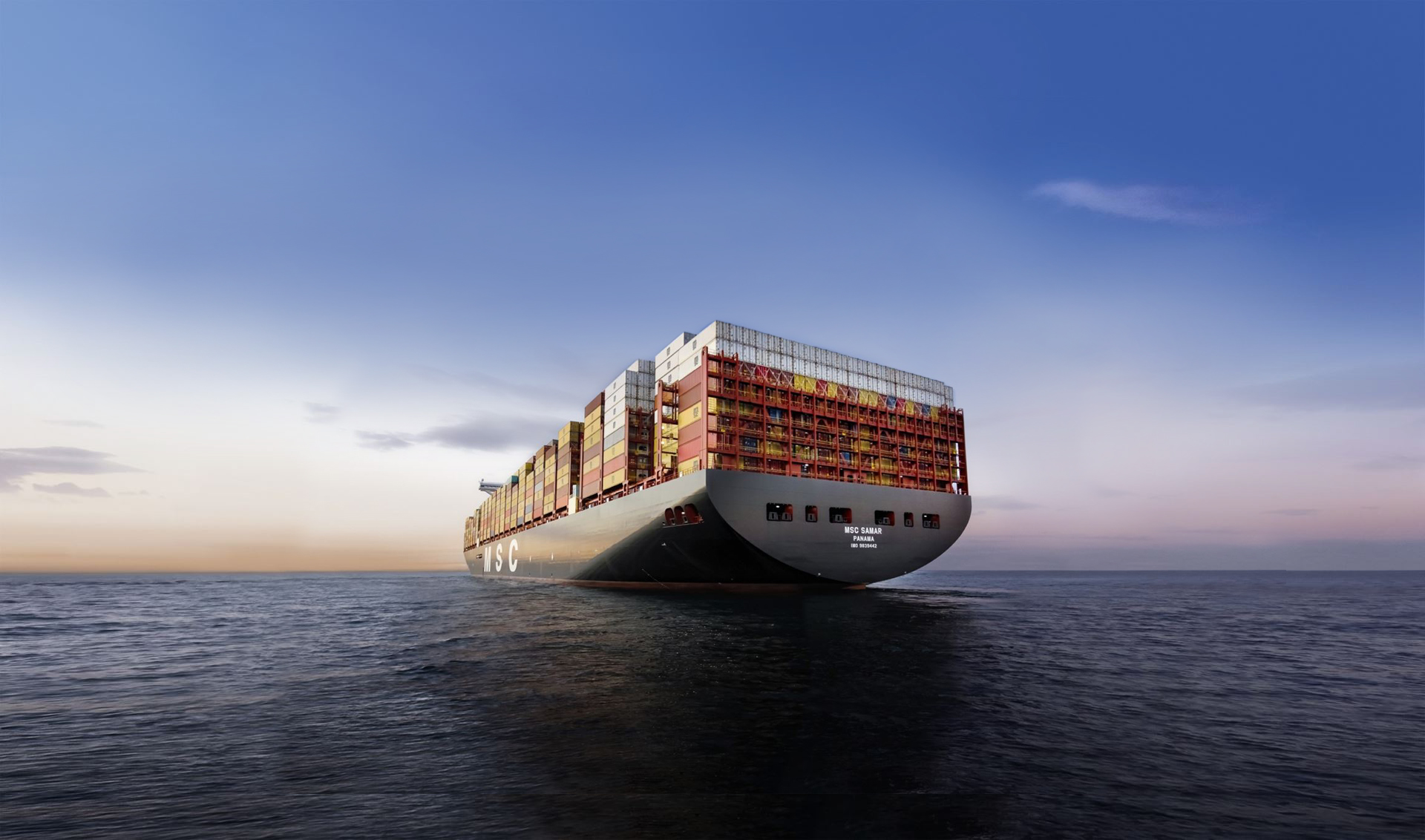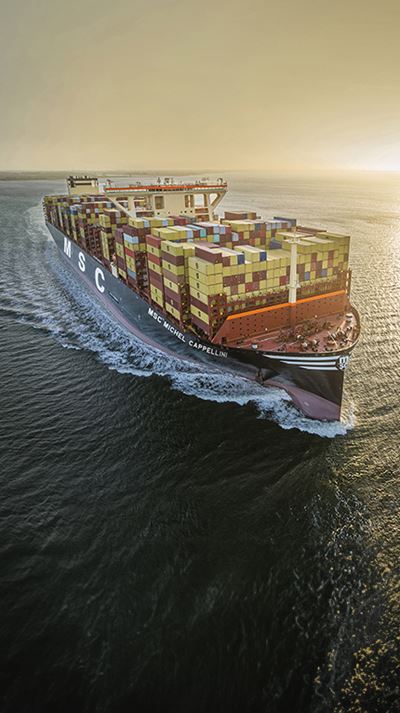Our Solutions
As well as being a global leader in container shipping, our worldwide teams of industry specific experts mean we can offer our customers round-the-clock personalised service. This ensures we deliver fast and reliable transit times, and that we provide the best solutions for your needs.
As well as being a global leader in container shipping, our worldwide teams of industry specific experts mean we can offer our customers round-the-clock personalised service. This ensures we deliver fast and reliable transit times, and that we provide the best solutions for your needs.
Your Shipping Needs Met
At MSC we pride ourselves on being a global container shipping company that delivers tailored solutions designed to meet the specific needs of each of our customers. Regardless of your cargo type, or final destination, we offer versatile solutions that cover air, land, and sea.
Thanks to the extensive capacity of our container fleet, MSC is the trusted transportation partner and shipping company for numerous companies the world over. Combining this with our global port coverage and extensive equipment availability means, we are able to deliver a professional, efficient shipping service, tailored to the specific needs of your business.













